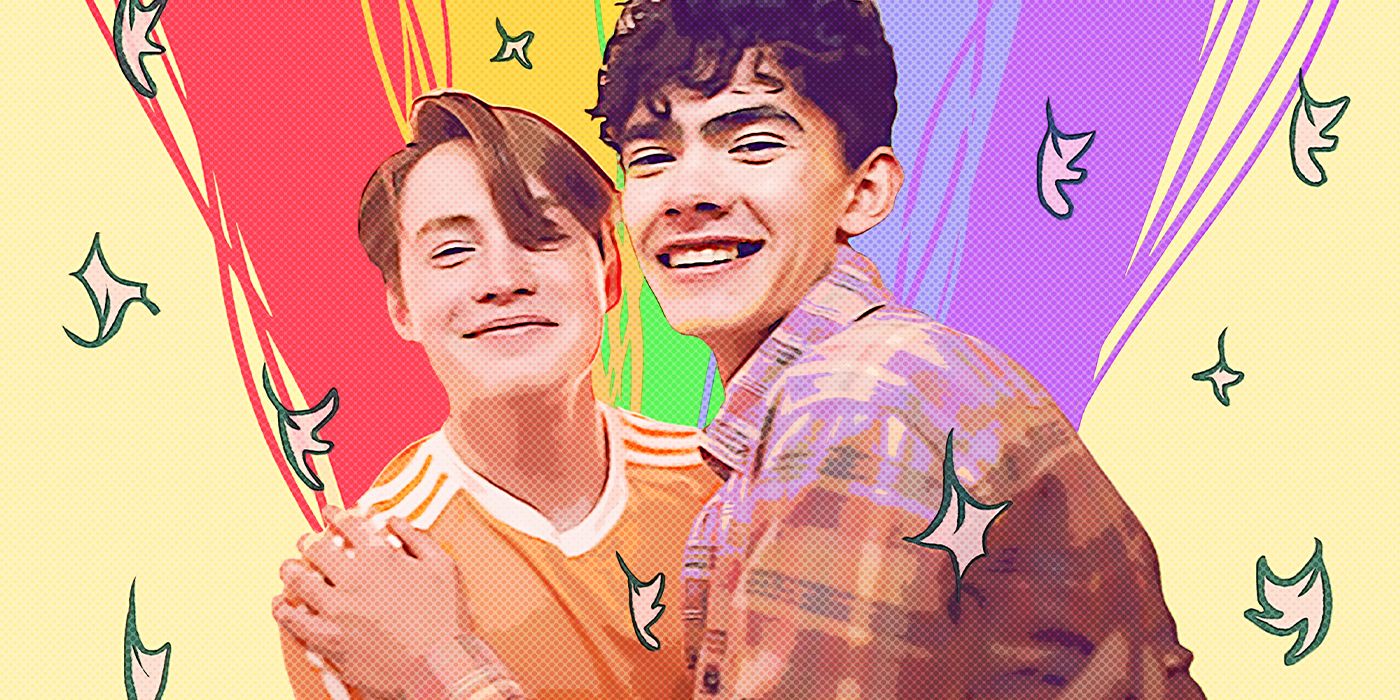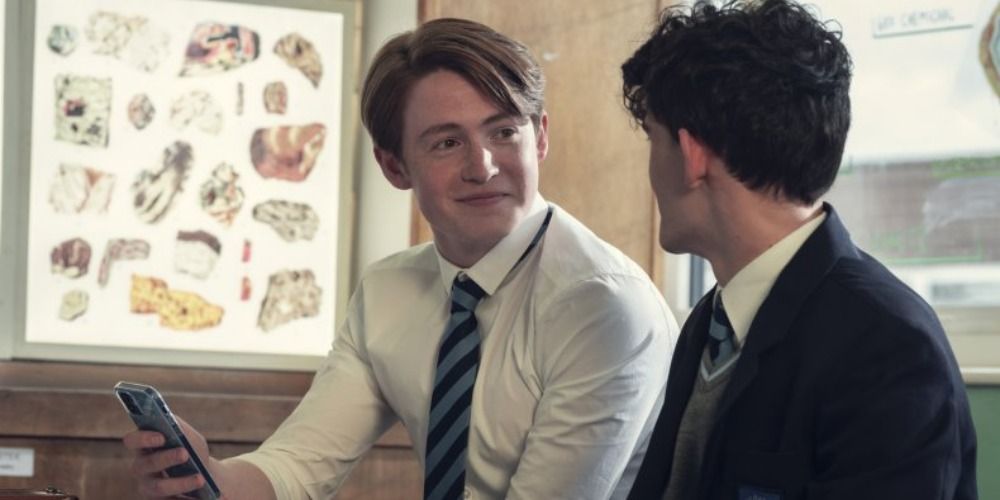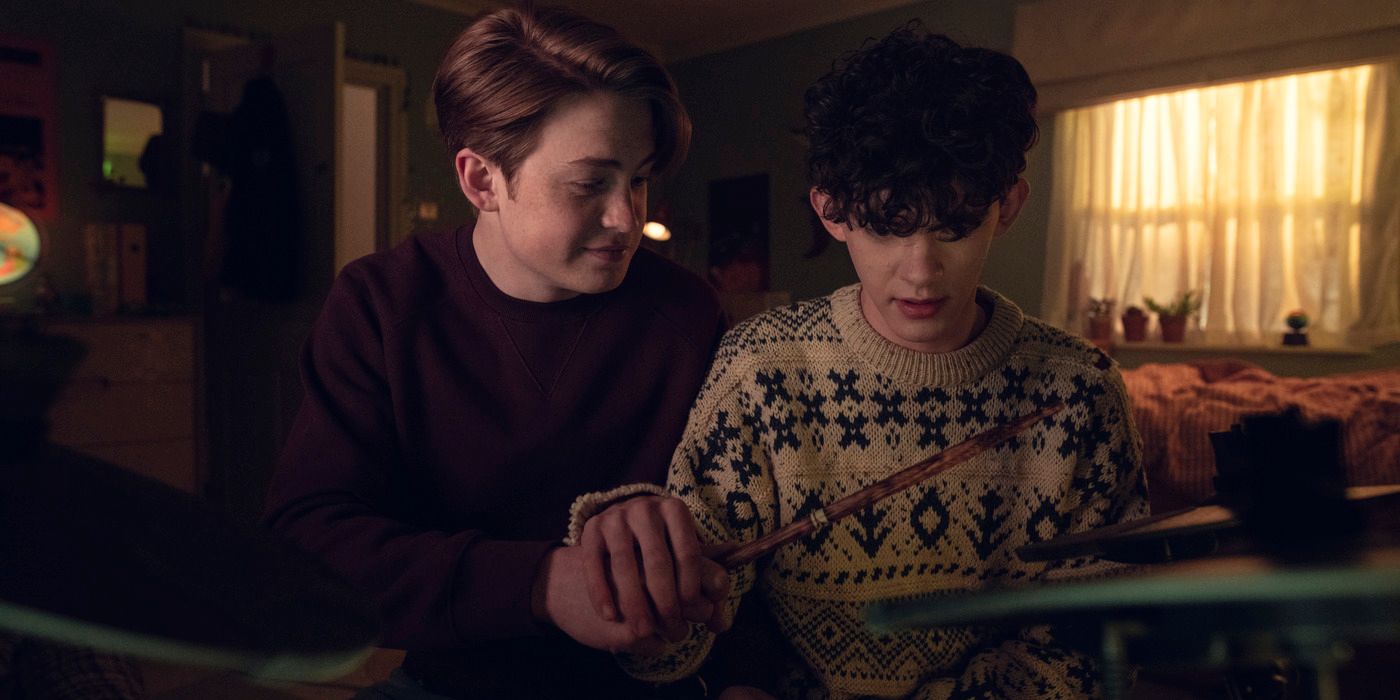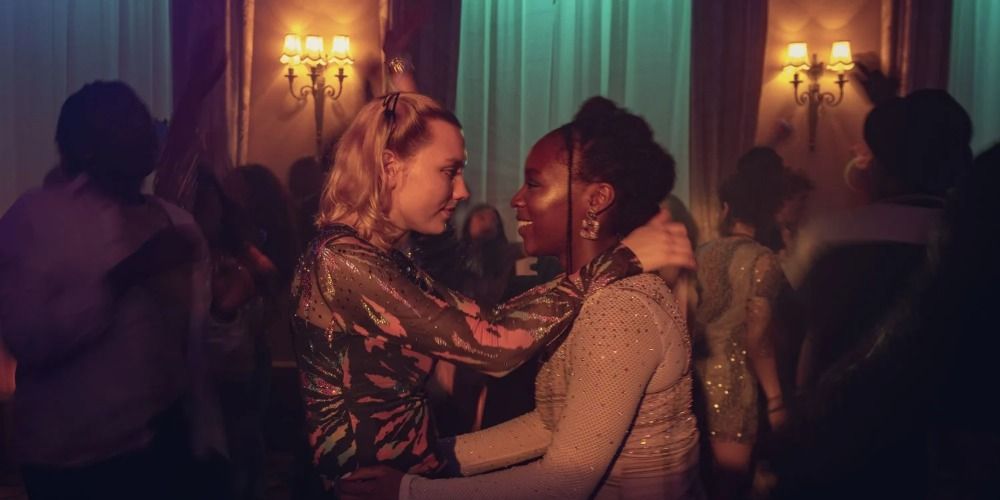Heartstopper is the British Graphic Novel turned Netflix series written and illustrated by Alice Oseman. The story follows Charlie Spring (Joe Locke), an openly gay high school student, as he navigates his first relationship with the school’s Rugby king Nick Nelson (Kit Connor), who is also trying to figure out his sexual identity for the first time in his life. In a landscape of queer stories shadowed by suffering and sorrow, Heartstopper is a breath of fresh air with its depiction of the queer experience. Many shows depicting LGBTQ+ characters often have said characters going through numerous trials and struggles, never getting to truly enjoy their romance. One of the most common tropes in gay romance is what fans have dubbed the “bury your gays” trope because of how often a queer character is killed off in a show/movie so that the story won’t have to actually depict Queer characters. However, Heartstopper subverts all of these expectations while still providing a realistic depiction of the Queer experience in an environment that may not always be welcome to it.
Heartstopper manages to spend as much time focusing on the emotions of its characters and how they react to the experiences they’re going through as it does to the realities that can make coming out in high school so terrifying. It treats its characters with respect and allows them to truly flourish in their relationships just for the sake of being romantic. This both grants hope to anyone watching the show, while also staying true to the lived experience of Queer people. It chooses not to shy away from the darker parts of the Queer experience, while still not letting that overshadow how much joy the characters gain from being together. In the show, the characters are allowed to revel in the excitement of romance, which is a luxury not often afforded to previous queer characters throughout media.
Throughout the story, as Nick and Charlie’s relationship grows, the audience gets to experience the moments that feel momentous that actually occur in the most intimate of ways. The depiction of when Nick starts to question his budding feelings for Charlie is shown with such purity that the excitement of the moment is palpable. While Charlie sleeps on the couch, Nick quarrels with the urge to hold his hand, as just attempting to do so feels like lightning between the two. Even the smallest moments feel momentous when you're in love.
In the next episode, Nick and Charlie share their first kiss, the moment is full of tentative hope, a feeling relatable to anyone who has been in this type of moment where you are about to share a first kiss with someone you are so desperately infatuated with. Once they kiss however, the spark between them grows into a full flame. As they try to process what happened, they realize that this is exactly everything they could have hoped for, and in turn they decide to revel in it by sharing in another kiss. The moment is intensely charged, both with the fear of how things could change, and the excitement of that very same prospect. Charlie asks Nick if he’s okay, and after a breathless confirmation the two are quickly interrupted by Nick’s friends looking for him and a startled Nick runs off. It is here where a typical LGBTQ+ romance would leave the moment at tragic longing and focus on the sadness that Charlie feels at his apparent rejection, but Heartstopper takes it in a different direction.
Once Nick realizes what he has done, he immediately goes to find Charlie, only to realize that Charlie has already left. But, instead of leaving the moment to fester between the two, Nick realizes he has to talk to him in person and explain himself, so he runs to Charlie’s house the next day to immediately let him know just how much he enjoyed their kiss and properly explain the emotional crisis he’s been feeling. Nick is having, as he puts it, “a proper gay crisis” and Charlie doesn’t pressure him to figure it out, he just gives him support and comfort. The show allows Nick to be given the respect he deserves when going on his journey of figuring out what Bisexuality means to him, and how complicated that can be. But even as Nick is unsure of his labels or of himself in general, the one thing he is always sure of is how he feels about Charlie. While he may not be comfortable enough to tell everyone about their relationship he makes sure to still enjoy the moments he has in private with Charlie, and Charlie never questions if Nick actually cares for him or not. After Charlie comforting Nick in their discussion of Nick’s “gay crisis”, Charlie makes sure to end the encounter on a good note, and runs after Nick in the rain to kiss him one more time, just because he can. It’s perfectly fluffy and frivolous, which is everything a teenage romance should be.
Alongside Nick and Charlie’s high school romance, we follow part of the second half of the cast at the neighboring all-girls school with Tara Jones (Corinna Brown) and Darcy Olsson (Kizzy Edgell), a lesbian couple learning to navigate being out in their own way. At the start of the show, it can be assumed that Tara and Darcy have been dating for awhile at this point by how obviously comfortable they are in their relationship, however their relationship is still a secret and they haven’t come out to their school yet. Even in their interactions though you can see how comfortable they are with one another, sharing inside jokes and casual touches. The two are able to joke about how gay they are together, and take comfort in the fact that they know what their relationship dynamic is.
They end up coming out by sharing a kiss on the dance floor at a huge party where a bunch of other students are, and then by choosing to announce it via Instagram, but it is this that begins to make things a bit rocky for the two. Tara is struggling with seeing how people’s opinions of her have changed once they find out she’s a lesbian, and she often feels dehumanized by the way others talk about and observe her just for existing. Darcy is always quick to get Tara out of her negative thoughts though and cheer her up, and the two spend time reminiscing on how they got together or how their relationship progressed. At one point, Tara and Darcy end up locked in a music room at school, and once Darcy sees that something is wrong with Tara she immediately drops her joking persona to show Tara how she supports her. Tara comes clean about all the conflicted feelings she’s had about coming out and how much it’s changed things. Tara is very clear about how she doesn’t regret it, but that doesn’t make the changes any less difficult, and the ways that people think about her differently any less scary. Tara just wants to live her life with Darcy and be happy together, and Darcy reassures her that they can do that. For them, the two are not mutually exclusive, and as long as they remember that they have each other, then navigating these changes becomes much less terrifying.
Heartstopper doesn’t shy away from homophobia throughout its run, much of the time spent with the rest of the Rugby team is overshadowed by their blatant homophobia. Instead, however, the show goes out of its way to assure audiences that even if it seems hard at times, and there will be moments of sadness, there’s still something worth being hopeful for in this kind of love. In the final episode of the show, Nick tells Charlie that he doesn’t care about what his friends think, he doesn’t care about what he has to go through because the romance between them makes everything worth it to him, and this is truly what Heartstopper is about and the message it is sending. Audiences get to see Nick tell Charlie how much he adores every aspect of him, and how much a love like theirs can be worth. To Nick, and thus to the audience, their love is more important than anything anyone else could put them through, which is a message rarely given to viewers. No matter what, a love like theirs will always be more important than any sort of hardship they may be put through. Finally audiences are able to see that if they have a love like this it will be worth it.




